Difference between revisions of "Leather belt"
m |
|||
| Line 10: | Line 10: | ||
==Leather belts== | ==Leather belts== | ||
| − | Most belts sold in the world are made of [[leather]], and most of them are made of [[Thickness of leather|thick]], solid [[Cow leather|cow hide]]. Cow hide is [[leather quality|stable]], available in sufficient quantities, and cattle hides are [[Measures and weights|large enough]] to produce belts with a waist size of 1.7 metres. Mostly [[Vegetable-tanned leather|vegetable tanned]] leather is used because of the higher filling ability of [[tannins|vegetable tannins]] making it strong and solid enough for a belt.It is common for belts to have decorative [[Embossed leather|embossing]], [[Embroidery|stitching]] or [[Braided leather|braiding]]. | + | Most belts sold in the world are made of [[leather]], and most of them are made of [[Thickness of leather|thick]], solid [[Cow leather|cow hide]]. Cow hide is [[leather quality|stable]], available in sufficient quantities, and cattle hides are [[Measures and weights|large enough]] to produce belts with a waist size of 1.7 metres. Mostly [[Vegetable-tanned leather|vegetable tanned]] leather is used because of the higher filling ability of [[tannins|vegetable tannins]] making it strong and solid enough for a belt. It is common for belts to have decorative [[Embossed leather|embossing]], [[Embroidery|stitching]] or [[Braided leather|braiding]]. |
In China belts are produced at a very low cost and therefore sold at a very low price. Cheap belts often consist of several layers. Some layers are then made of cheaper materials such as cardboard, foam or plastic. Check carefully whether it is really a sturdy belt or even [[leather#What materials can be called leather?|real leather]]. | In China belts are produced at a very low cost and therefore sold at a very low price. Cheap belts often consist of several layers. Some layers are then made of cheaper materials such as cardboard, foam or plastic. Check carefully whether it is really a sturdy belt or even [[leather#What materials can be called leather?|real leather]]. | ||
Revision as of 06:51, 29 January 2017
Contents
Leather belts
Most belts sold in the world are made of leather, and most of them are made of thick, solid cow hide. Cow hide is stable, available in sufficient quantities, and cattle hides are large enough to produce belts with a waist size of 1.7 metres. Mostly vegetable tanned leather is used because of the higher filling ability of vegetable tannins making it strong and solid enough for a belt. It is common for belts to have decorative embossing, stitching or braiding.
In China belts are produced at a very low cost and therefore sold at a very low price. Cheap belts often consist of several layers. Some layers are then made of cheaper materials such as cardboard, foam or plastic. Check carefully whether it is really a sturdy belt or even real leather.
Leather belts offered all over the world.
Belt with embossing. - Belt with braiding from parchment.
Heavy duty belt: American bull leather, vegetable tanned, 6.3mm leather thickness (Wolf Continental).
Leather belt from bison leather (www.heinzbauer.com). - Python leather belt.
Leather belt from Python leather combined with cow hide and with croc embossed.
Work belt in the Pantanal in Brazil.
Holsters for weapons, ammunition, etc.
video about leather belts
The manufacturing of leather belts at www.ludwigschroeder.de.
Cartridge belts made of leather
Hippopotamus leather cartridge belt for a big game hunter manufactured by www.ledermanufaktur.com.
Other leather belts
Belts are often made of leather and are available for various purposes.
Handbag straps or straps of suitcases are often made of leather.
Leather belts can hold the bonnets of vintage cars.
Leather belts of natural leather (www.katharinaeisenkoeck.com).
Leather belts can tension the convertible top or hold the rear view mirror.
Or fix the spare wheel.
A beautiful picnic suitcase with leather belts from www.landlord-pas.de.
Bridle for horses.
And in eroticism. The use of leather straps doesn`t know boundaries ...
Additional information









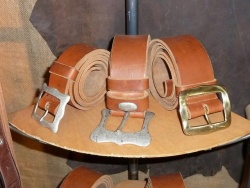
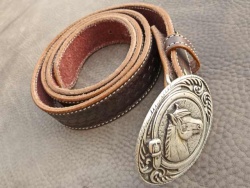

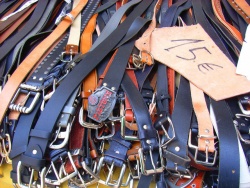
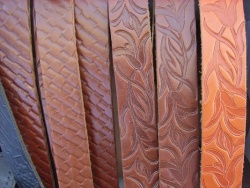









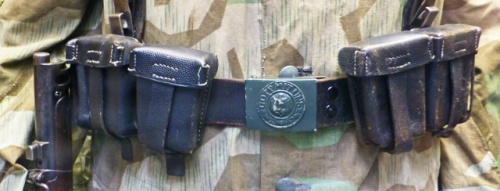
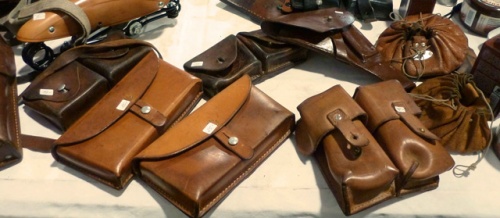










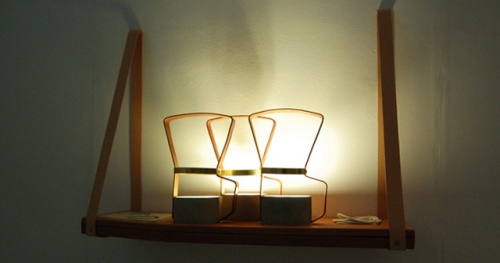


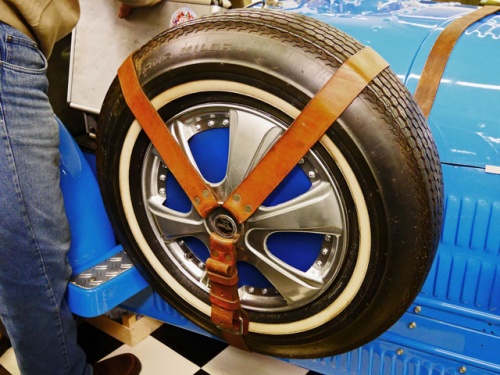
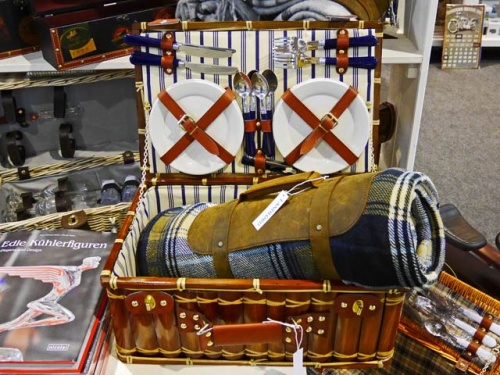


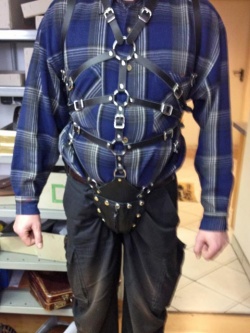
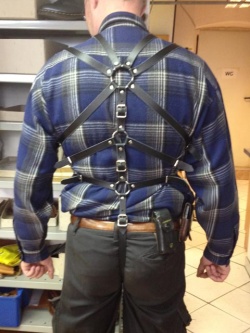

 a kotori web solution
a kotori web solution